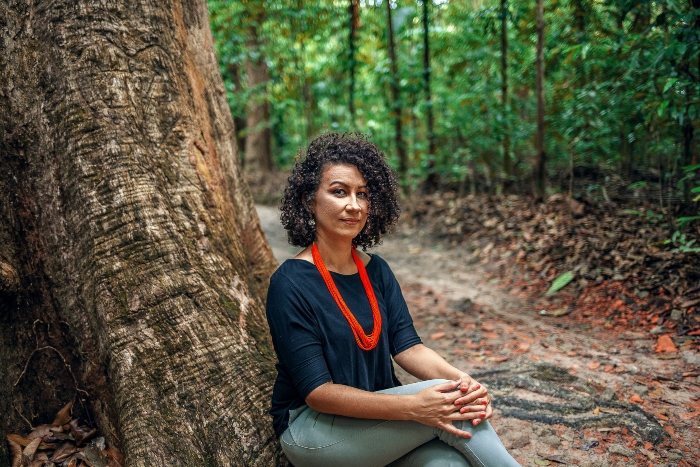Brazilian researcher earns international award in Ecology
Brazilian researcher earns international award in Ecology
The biologist Joice Ferreira, a researcher at Embrapa Eastern Amazon, is one of the 2019 British Ecological Society (BES) award winners. The announcement was made on Wednesday (28) and included nine professionals from different countries. The Brazilian researcher will receive the award in December during the Society's annual conference in London.
Joice Ferreira was awarded in the “Ecological Engagement” category, which recognizes an ecologist who has contributed to involving the general public in Ecology research through communication and interaction initiatives in different media at a world level. “Despite such kind of work involving a large investment of time and energy, it is not always as valued in academic circles as the production of papers. But in the end, it is what inspires me the most, when I see years of research condensed into news reports, public policy and work of other nature translate into transformative change, which can contribute to reducing threats to the Amazon region”, the ecologist asserts.
International awardThe British Ecological Society (BES) annually awards professionals and researchers who significantly contribute to scientific development in the scope of Ecology and Climate Change, to promote equality and diversity in the ecological community and to bring society closer to science. There are nine categories that include awarding young scientists, ecologists and professionals from institutions around the whole world. Click here and check the winners of the 2019 BES Awards and Prizes. |
Engaged work
Joice is a biologist, with an MSc and PhD in Ecology, who has been working at Embrapa Eastern Amazon for fifteen years as a researcher. Her research work seeks solutions for complex socioecological problems related to agricultural expansion, forestry and wildfires in the Amazon region.
Stepping outside one's comfort zone is what challenges the researcher the most, “Approaching the complex issues that involve sustainability in the Amazon depends on conciliating very different visions and aspirations about the region. It is easy to just discuss such issues with one's colleagues and never leave one's comfort zone. But doing that reduces the likelihood of making a difference in the real world”, the expert assesses.
She recalls that her first experience of crossing that line took place around ten years ago, when she started planning ecological research in soybean crop areas in the Eastern Amazon region. The interaction with farmers and the understanding of needs and points of view in within that group were fundamental to develop the work and build awareness about forest conservation. “The long history of partnership and trust between farmers and Embrapa facilitated such closer ties”, Joice Ferreira adds.
The researcher is one of the founders of the Sustainable Amazon Network, or Rede Amazônia Sustentável (RAS), a consortium that gathers 30 Brazilian and international institutions, which has worked with the assessment of sustainability of Amazon land uses since 2009. “Engagement requires the development of solid partnerships and collaborative relationships. Embrapa's participation in the RAS network has been fundamental to bridge the gap between ecological science and the general public”, she concludes.
Translation: Mariana Medeiros
Ana Laura Lima (MTb 1268/PA)
Embrapa Eastern Amazon
Press inquiries
amazonia-oriental.imprensa@embrapa.br
Phone number: +55 91 3204-1200
Further information on the topic
Citizen Attention Service (SAC)
www.embrapa.br/contact-us/sac/

